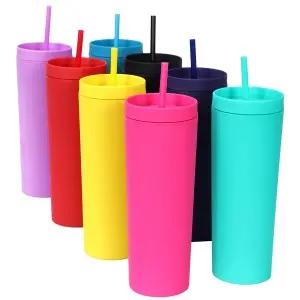With the increasing focus on sustainability and environmental protection, recycling has become a popular way to reduce waste and promote resource conservation. Plastic bottles are ubiquitous in our everyday lives and have been a hot topic of debate when it comes to recycling. In this blog, we explore the question: Can plastic bottles really be recycled?
Recycling Plastic Bottles – Sustainable Solutions:
Plastic bottles are usually made from polyethylene terephthalate (PET) and are indeed recyclable. Recycling these bottles has many environmental benefits. First, recycling plastic bottles reduces the amount of waste sent to landfill. By diverting them to recycling centers, we can significantly reduce the pressure on limited landfill space.
Recycling plastic bottles also conserves natural resources. By reusing plastic, we can reduce the need for new raw materials, such as petroleum, the main ingredient used in plastic production. Less demand for oil means a smaller environmental footprint and a step towards a more sustainable future.
Recycling process:
Knowing how plastic bottles are recycled can shed light on their recyclability. The recycling process usually includes the following steps:
1. Collection: Plastic bottles are collected through local recycling programs or curbside collection. These collection methods are designed to minimize the amount of plastic bottles in the general waste stream.
2. Sorting and cleaning: After collection, the bottles are sorted according to their plastic resin type. This separation ensures an effective and efficient recycling process. The bottle is then rinsed to remove any remaining impurities.
3. Shred and Melt: Next, the cleaned bottle is shredded, turning it into small flakes. These flakes are then melted to form a molten mass called “plastic resin.”
4. Reuse: Molten plastic is cooled, formed into pellets, and used to make various products. These range from new plastic bottles to clothing, furniture and even building materials.
Recycling Challenges and Improvements:
While plastic bottle recycling offers many benefits, several challenges prevent it from realizing its full potential. A major obstacle is pollution. When people fail to properly rinse or remove non-recyclable material from bottles, it compromises the quality of recycled plastic and reduces its usability.
Another challenge is market demand. Demand for recycled plastics is not always consistent, causing price volatility and hampering the profitability of recycling programs. Raising awareness about the importance of purchasing products made from recycled materials can help create a stable market for recycled plastics.
To overcome these challenges, governments, industry and individuals must work together. Governments could encourage recycling and impose stricter regulations on plastic bottle manufacturing. Industry can invest in innovative recycling technologies and create sustainable packaging alternatives. Individuals can actively participate in recycling programs and prioritize purchases of products made from recycled materials.
in conclusion:
In conclusion, plastic bottles are indeed recyclable, offering a sustainable solution for reducing waste and conserving resources. The recycling process, while not without its challenges, can repurpose them into a variety of useful products. By understanding the importance of recycling and making conscious choices, we can contribute to a cleaner, greener future, and plastic bottles play a valuable role in the circular economy.
Post time: Jul-07-2023
